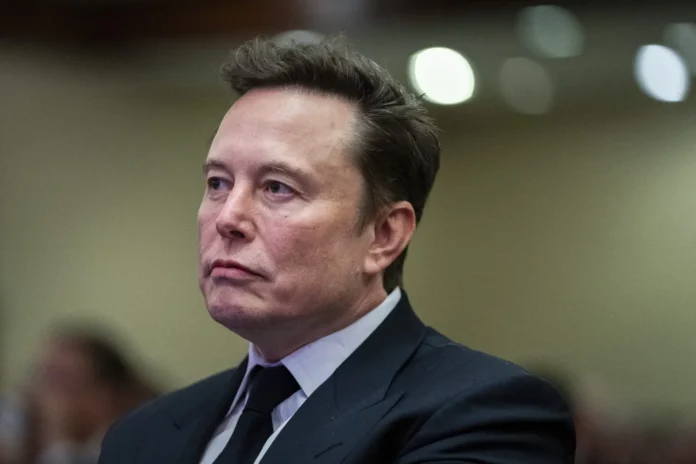Elon Musk, who proudly calls himself the “First Buddy” of President-elect Donald Trump, has stepped into the political ring, shaking things up in Washington. His latest move? Blocking a last-minute deal to keep the government running and avoid a shutdown. The clash puts him at odds with Republican House Speaker Mike Johnson, who introduced the plan late Tuesday.
In what seems to be a dramatic twist, Musk has effectively stopped the funding plan in its tracks before it even reached a vote. The billionaire took to his platform, X (formerly known as Twitter), to launch a rapid-fire series of posts criticizing the bill. The legislation, which aimed to keep the government funded until March 14, had support from both Democrats and Republicans. Musk, however, slammed it and shared misleading claims about its contents. Adding fuel to the fire, his commission, the Department of Government Efficiency (DOGE), also backed his push to cut government spending and regulations.
On the same day, Trump himself released a statement opposing the bill, along with Vice President-elect J.D. Vance. Several far-right Republican lawmakers also declared they’d vote against it. If Speaker Johnson can’t get a new funding plan approved by December 20, the government could partially shut down just as the holiday season kicks off. Musk and his online supporters, however, seemed to welcome the idea of a shutdown.
One X user wrote, “Just close down the government until January 20th. Defund everything. We will be fine for 33 days.” Musk replied with a resounding “YES” and later added his own fiery take: “No bills should be passed by Congress until January 20, when Trump takes office. None. Zero.” His posts didn’t stop there—he even reshared a meme of himself slashing the bill with a sword, captioned “KILL THE BILL,” and called for voters to kick out any member of Congress supporting the measure.
Musk found allies in GOP lawmakers like Barry Moore, Anna Paulina Luna, and Warren Davidson, who publicly thanked him on X for his stance. They, too, blasted the bill as an “omnibus” package filled with unnecessary spending.
So, what was in this controversial bill? Known as H.R. 10445, the proposed legislation sought to allocate $100 billion for disaster recovery, $30 billion for farmers, and funds to rebuild Baltimore’s collapsed Francis Scott Key Bridge. It also tackled issues like lowering prescription drug prices, making hotel and ticket prices more transparent, and even criminalizing revenge porn. There was also a section giving Washington, D.C., more control over the area around the old RFK Stadium as the city tries to bring back its NFL team, the Washington Commanders.
One sticking point for critics was a small pay raise for members of Congress—about $6,600 per year or 3.8% of their salary. Musk and DOGE falsely claimed the raise was $69,000, sparking outrage online. Musk also amplified unfounded claims that the bill included mask and vaccine mandates, which were nowhere to be found in its 1,500 pages.
Another rumor Musk and his followers spread was that the bill earmarked billions for a new NFL stadium in Washington, D.C. In reality, the bill explicitly stated that federal funds could not be used for such a project. Other wild claims included accusations that it protected former Representative Liz Cheney from prosecution and funded censorship activities through the State Department’s Global Engagement Center, which focuses on countering foreign propaganda.
Now that the bill is dead, Speaker Johnson faces an uphill battle to keep the government running. His backup plan is to propose a simpler funding bill, dropping many of the expensive provisions, like disaster relief and farm aid. But this strategy could alienate Democrats and still face opposition from hardline Republicans.
As for Musk, he’s taking a victory lap, claiming his platform gave “the voice of the people” the power to kill the bill. “Your elected representatives have heard you,” he wrote, “and now the terrible bill is dead.” But for many, it seems Musk’s own voice might have been the loudest in this debate.




























